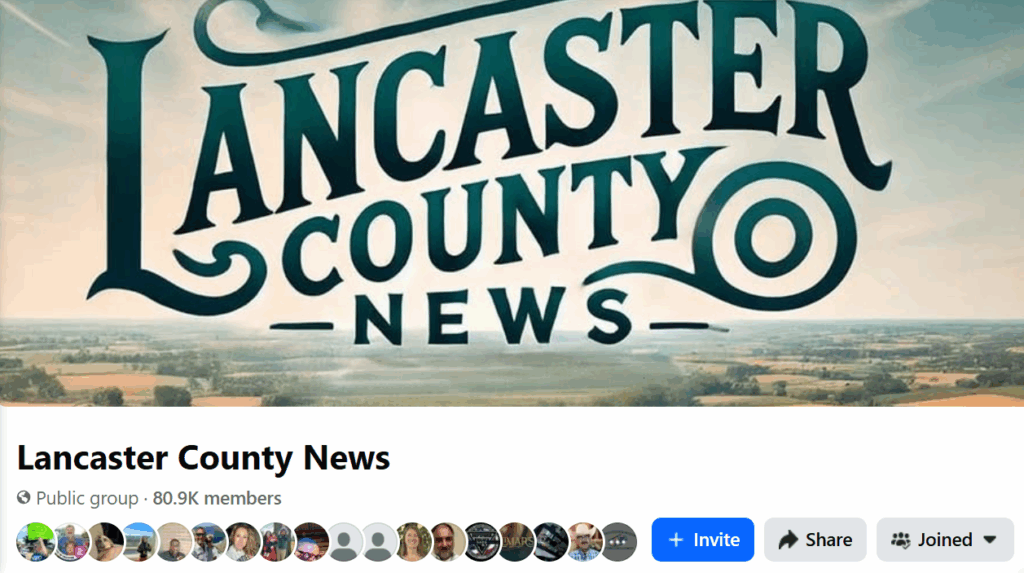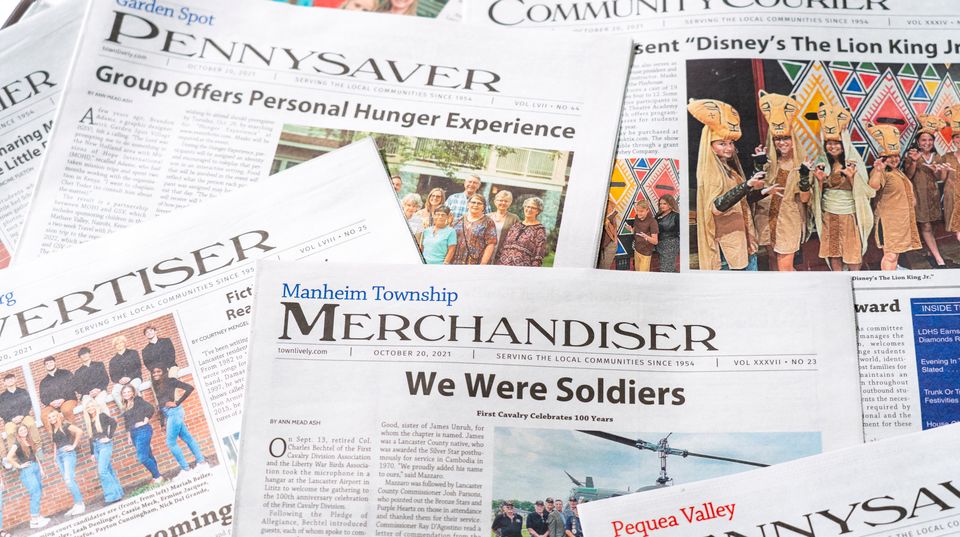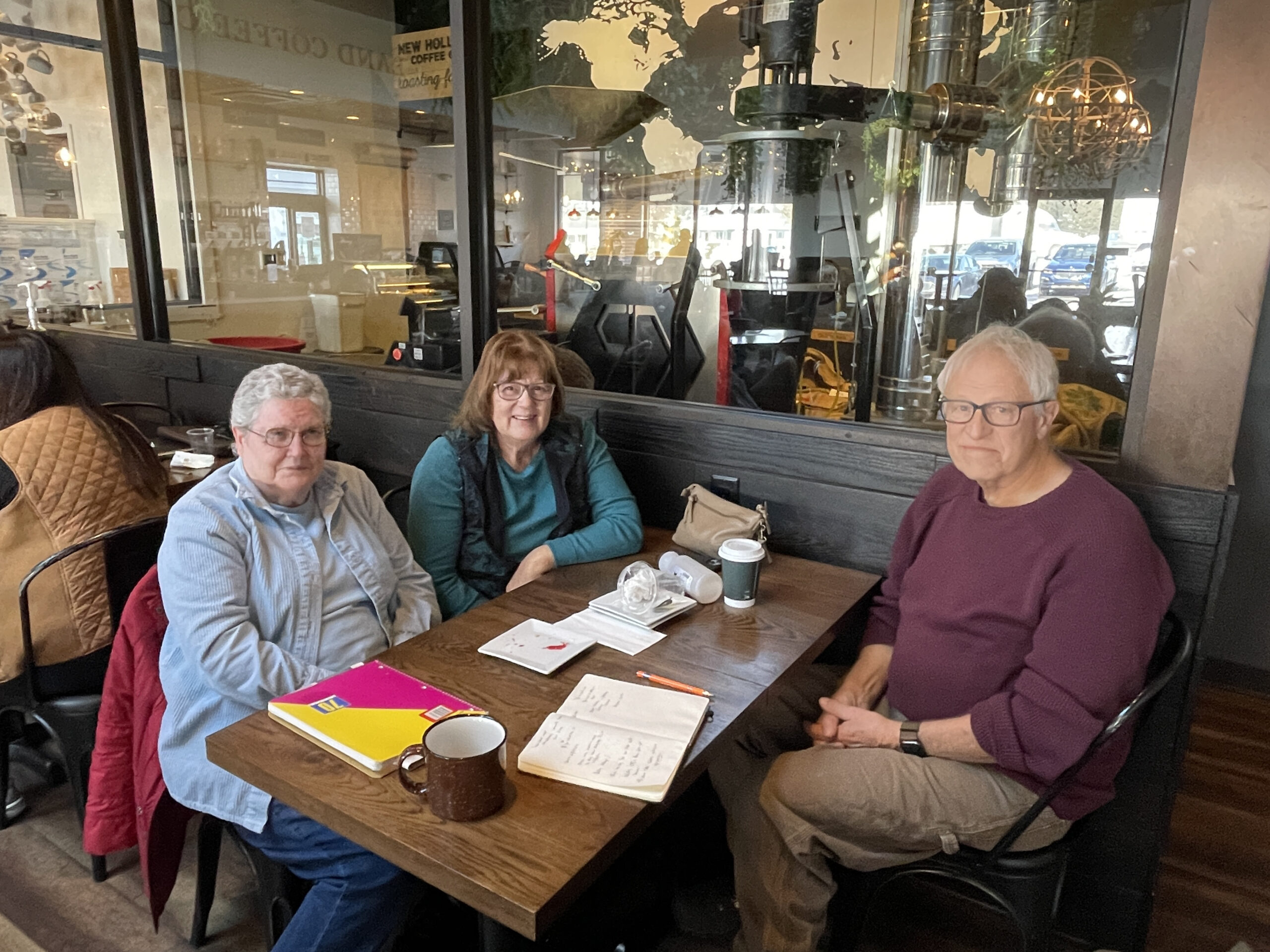When the message first came in, I almost instinctually forwarded it to LNP customer support without reading too far. At first, the message looked like one of the many messages we receive expressing frustration about the increasing prices of the local newspaper. A perfectly reasonable complaint, but also one we–not involved with the day to day operations of the newspaper operation-could do anything about.
When I looked deeper however, a more important message emerged, with one sentence really sticking out:
“It’s like local news doesn’t have any idea that we exist!”
After reading the rest of Rebecca’s message, I felt compelled to not only respond but invite her for a conversation.

Representing Narvon, PA, a town of 62 people straddling the border of Lancaster and Chester Counties, Rebecca and her friends are technically “surrounded” by local news. Technically. Located within the catchment region of at least two local newspapers, they are subscribers to the LNP | LancasterOnline newspaper and the weekly circular.
But their position in the county makes means that just because they live in a local news jungle, doesn’t mean that their news is local to them. With Narvon straddling the Chester and Lancaster County line, and closer to Coatesville than Lancaster City, it means much of the pressing news for their town isn’t represented in local journalism, and the city-centric coverage of their local daily means “I only see my community in print once or twice a year.”
When I spoke with Rebecca and her friends, they brought up the need for local coverage to feel a sense of place. Without consistent coverage of things like local municipal meetings they only find out about important changes to their small community after the fact. If they find out at all. Their proximity to Coatsville meant that developments with the regional hospital in Chester County went completely unreported.
Adding to this loss of sense of place, the things that Rebecca called “true” local news (obituaries, birth announcements, and wedding announcements) are increasingly monetized out of reach for many residents. In fact, due to the price of printing obituaries, she didn’t even bother to honor her late husband with an entry.
When it comes to hyper-local content, Rebecca and her friends rely on two main sources, neither of them the local daily paper: a weekly circular called The Community Courier, which prints a limited number of local positive stories, and Facebook groups.
Facebook groups provide both a sense of community but also, in the words of one of Rebecca’s friends, a common set of rules around decency, civility, and content. They allow you to find out information about what’s happening on the block down from your street without it devolving into partisan or political bickering (though of course, this requires a moderator willing to enforce community guidelines).

In a world where traditional news sources are disappearing daily, how can we best serve residents who still slip through the cracks of a catchment area: people who are loyal and willing to support a local news source but don’t feel represented by its content?
The answer, it seems, does not lie at the margins: increasing prices for less relevant content, charging higher for services that help tell the story of the changing face of our community, and–in the case of Rebecca and friends–sometimes even missing delivery of the product altogether.
These issues are not unique to our region, or our newspaper, but the opportunity to address them may be. With such rich geographic diversity in such a (relatively) small area, there is rich opportunity to experiment with hyper local content offerings, like the work of Town Lively (which owns The Merchandiser and many other County publications.
A few months after I spoke with Rebecca, I reached back out to both report back on our progress with our ecosystem mapping but also to see how she was feeling about the news in her area.

She eventually wrote back to inform me that her frustrations with many of the things we talked about lead her to finally cancel her subscription. Despite her anger, she remained optimistic about the practice of local journalism “I feel that you and others will figure out how to move forward [with supporting the local news ecosystem],” she wrote.
I too, feel that together we will. But before we can get there, we need to also reach other the people we are about to lose.
She signed off, “It was good to know that someone was actually listening.”

